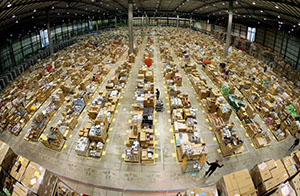Role of Shipping & Fulfillment Integration in Ecommerce Success
Shipping and fulfillment integration plays a crucial role in Ecommerce success. Properly managing these processes can enhance customer satisfaction, streamline operations, and boost overall efficiency. In this blog post, we will explore the vital role of shipping and fulfillment integration in Ecommerce and how it contributes to business success.
Why Shipping & Fulfillment Integration Matters
Shipping and fulfillment integration is essential for smooth Ecommerce operations. It connects various aspects of the supply chain, from order placement to delivery. A seamless integration ensures that orders are processed efficiently, inventory is managed accurately, and customers receive their products on time. This integration directly impacts customer experience and business performance.
1. Enhances Customer Experience
Shipping and fulfillment integration greatly enhances the customer experience. When these processes are well-integrated, customers receive accurate tracking information and timely updates. This transparency builds trust and reduces anxiety about order status. Additionally, efficient shipping and fulfillment lead to faster delivery times, which can significantly improve customer satisfaction and loyalty.
2. Streamlines Order Processing
An integrated shipping and fulfillment system streamlines order processing. Orders are automatically routed to the appropriate fulfillment center based on factors like location and inventory levels. This reduces manual intervention and speeds up order fulfillment. Moreover, automation helps in minimizing errors and delays, ensuring that orders are processed accurately and quickly.
3. Optimizes Inventory Management
Effective inventory management is crucial for Ecommerce success. Shipping and fulfillment integration helps optimize inventory levels by providing real-time data on stock availability. This prevents overstocking and stock outs. Integration also enables better forecasting and demand planning, which ensures that inventory is aligned with sales trends and customer needs.
4. Reduces Operational Costs
Shipping and fulfillment integration can lead to significant cost savings. By automating various processes, businesses can reduce labor costs associated with manual order processing and inventory management. Additionally, integration can improve shipping efficiency by selecting the most cost-effective carriers and shipping methods. These cost savings can be reinvested into other areas of the business.
5. Provides Real-Time Tracking
Real-time tracking is a valuable feature of shipping and fulfillment integration. It allows customers to monitor their orders from the moment they are placed until delivery. Providing real-time updates reduces customer inquiries and enhances satisfaction. Furthermore, real-time tracking helps businesses identify and address potential issues promptly, ensuring a smoother delivery process.
6. Facilitates Easy Returns
An integrated system simplifies the returns process. Integration can also provide customers with return labels and instructions, making the process hassle-free. Efficient handling of returns not only improves customer experience but also helps maintain inventory accuracy.
7. Enhances Scalability
As your Ecommerce business grows, so does the complexity of shipping and fulfillment. An integrated system scales with your business, accommodating increased order volumes and expanding product lines. This scalability ensures that your operations remain efficient and effective, even as your business reaches new heights.
8. Improves Data Accuracy
Accurate data is critical for decision-making in Ecommerce.Shipping and fulfillment integration keeps data across various systems synchronized and up-to-date. This accuracy is essential for generating reliable reports, analyzing performance, and making informed decisions. Integration minimizes data discrepancies and ensures consistency across all operational areas.
9. Supports Multichannel Sales
For businesses operating on multiple sales channels, shipping and fulfillment integration is vital. It consolidates orders from various platforms into a single system, streamlining processing and fulfillment. This integration allows businesses to manage inventory, track orders, and handle shipping efficiently, regardless of the sales channels used.
10. Enhances Competitive Advantage
Finally, shipping and fulfillment integration can provide a competitive edge. By offering faster shipping, accurate tracking, and efficient returns, businesses can differentiate themselves from competitors. Superior shipping and fulfillment capabilities can attract more customers and foster brand loyalty. In the competitive Ecommerce landscape, these advantages can lead to increased market share and profitability.
Conclusion
Shipping and fulfillment integration is a cornerstone of Ecommerce success. It enhances customer experience, streamlines order processing, and optimizes inventory management. Additionally, it reduces operational costs, provides real-time tracking, and facilitates easy returns. Integration supports scalability, improves data accuracy, and enhances multichannel sales capabilities. Ultimately, a well-integrated shipping and fulfillment system can provide a significant competitive advantage.
In summary, investing in shipping and fulfillment integration is crucial for any Ecommerce business aiming to thrive. By implementing an effective integration strategy, businesses can improve efficiency, reduce costs, and deliver a superior customer experience. This, in turn, paves the way for long-term success and growth in the ever-evolving Ecommerce landscape.

